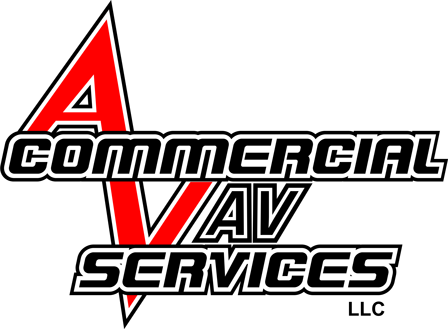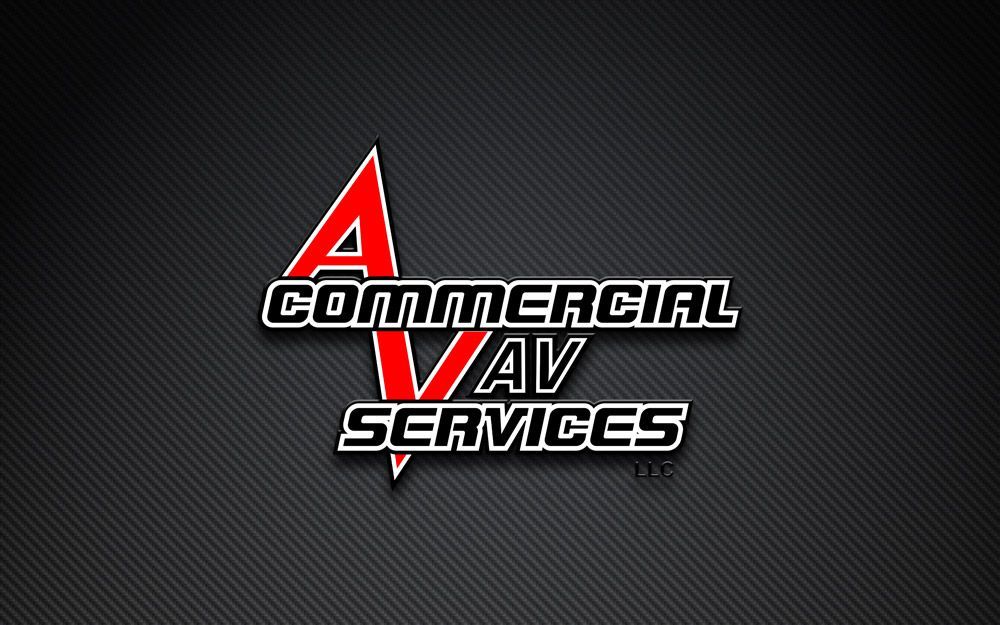Blog & News
Enhancing Security in Commercial Spaces with CCTV: What You Need to Know
Home » Commercial Audio Video Tips » Enhancing Security in Commercial Spaces with CCTV
Table of Contents:
- Introduction to CCTV for Business Security
- Choosing the Right Security Camera Installation Company
- Installation Process and Best Practices
- Maximizing the Effectiveness of Your CCTV System
- Advanced CCTV Features and Technologies
Introduction to CCTV for Business Security
In today's world, ensuring the safety of your commercial space is crucial. Closed-circuit television (CCTV) systems play a vital role in maintaining security. They act as a deterrent to potential intruders and provide valuable footage in case of security breaches. CCTV technology has evolved, offering high-resolution video, remote access, and even integrating with other security measures like alarm systems.
As a new business owner, understanding the essentials of CCTV can help you protect your assets, employees, and customers. This section will guide you through the importance, technology, and benefits of CCTV for your business.
Importance of Security Cameras in Commercial Settings
Security cameras are not just about recording potential theft or vandalism; they are critical tools for overall safety management. In commercial settings, they monitor customer and employee activities, deter criminal activities, and can even reduce liability risks.
CCTV systems can be tailored to various business types, whether it's a retail store, office, or restaurant. They keep an eye on sensitive areas like cash registers, entrances, and warehouses. This constant surveillance ensures a safe and secure environment for everyone involved in your business.
Overview of CCTV Technology
CCTV technology has advanced significantly over the years. Modern CCTV cameras offer features like high-definition video quality, night vision, motion detection, and remote viewing capabilities. These features allow for clearer images, helping in accurate identification of individuals and activities.
Digital Video Recorders (DVR) and Network Video Recorders (NVR) are used to store and manage the footage. Understanding the technology behind CCTV is essential for choosing the right system for your business. It's not just about installing cameras; it's about creating a comprehensive security solution.
Key Benefits of Installing CCTV in Your Business
Installing CCTV systems in your business brings numerous benefits. It enhances overall security and surveillance, providing peace of mind. It can also be a significant deterrent against theft, vandalism, and other criminal activities. Furthermore, CCTV footage can be crucial in legal scenarios, offering evidence in disputes or criminal investigations. It’s not only about preventing negative incidents; CCTV systems can also help in improving business operations by monitoring workflows and customer interactions. Overall, CCTV installation is an investment in your business’s safety and efficiency.
Understanding and implementing CCTV technology is essential for enhancing the security and operational efficiency of your commercial space.
Partnering with Expert Commercial AV Services for Enhanced CCTV Security
In the world of giving importance to security for businesses in Phoenix, AZ, choosing an experienced Commercial Audio/Video Services provider is very important. Companies like Commercial AV Services stand out in this landscape, offering specialized expertise that transcends mere installation. Their profound understanding of both audio and video dynamics enables them to tailor CCTV systems that are not only technologically advanced but also seamlessly integrated into the unique acoustic and visual requirements of a space. This nuanced approach ensures that surveillance is not just a function of recording, but a sophisticated, holistic security solution.
By choosing
a provider that excels in both the audio and visual aspects, businesses can achieve a more comprehensive and effective security system, leading to enhanced safety and peace of mind in their commercial endeavors. Such strategic partnerships pave the way for a harmonized security infrastructure, where every element works in concert to safeguard the premises.
Choosing the Right Security Camera Installation Company
When it comes to safeguarding your business, selecting the right security camera installation company is as important as the cameras themselves. This decision can impact your business's security for years to come.
A reliable company not only provides quality equipment but also offers expert installation and maintenance services. They should understand your business's unique security needs and suggest a system that fits. Remember,
the effectiveness of your CCTV system heavily relies on proper installation and maintenance.
Factors to Consider When Selecting a Security Camera Installation Company
Choosing a security camera installation company requires careful consideration. When selecting a security camera installation company, prioritizing the most critical factors ensures that you make a well-informed decision.
Here are five essential aspects to consider:
- Experience and Expertise: The company's experience in installing security cameras is vital. Look for a company with a strong track record in both residential and commercial installations. This experience often translates to a deeper understanding of diverse security needs and the ability to handle complex installation scenarios.
- Quality of Equipment: The effectiveness of your security system largely depends on the quality of the cameras used. Ensure the company offers high-grade, durable cameras with essential features such as clear image quality, night vision, weather resistance, and high-resolution capabilities. Better equipment means more reliable surveillance.
- Customization and Scalability: Security needs vary greatly from one property to another. A competent installation company should be able to offer customizable solutions tailored to your specific requirements. Additionally, they should provide scalable options to accommodate future expansion or upgrading of your security system.
- Technical Support and Maintenance: Post-installation support is crucial for the ongoing effectiveness of your security cameras. Inquire about the company’s maintenance services and the availability of technical support. A company that offers prompt and efficient after-sales service ensures that any issues you encounter are quickly resolved.
- Cost and Value: While it’s important to consider the cost of installation, it's equally vital to assess the value you're getting. Comparing quotes from different companies is a good practice, but it's essential to balance cost with the quality of equipment and services offered. Remember, investing in a slightly more expensive but reliable and feature-rich system can be more beneficial in the long run.
By focusing on these five factors, you can select a security camera installation company that not only meets your security needs but also offers reliability, quality service, and value for money.
Understanding Different Types of Security Cameras
There's a wide variety of security cameras available, each suited for different purposes. Dome cameras are common for indoor surveillance due to their discreet design. Bullet cameras, recognizable by their cylindrical shape, are ideal for outdoor use with their long-range viewing capabilities. PTZ (Pan-Tilt-Zoom) cameras offer the flexibility to view wide areas and zoom in for details. And then there are IP (Internet Protocol) cameras that transmit video over a network, allowing remote access. Knowing the types of cameras and their specific uses can help you discuss your needs more effectively with the installation company.
Assessing Your Business's Specific Needs for CCTV
Every business is unique, and so are its security requirements. A retail store might need cameras focusing on cash registers and entry points, while a warehouse may require broader surveillance to cover large areas.
Factors like the size of your premises, the number of entry points, and the nature of your business play a crucial role in determining your CCTV needs. A professional security camera installation company will conduct a thorough assessment of your premises to recommend the most effective setup. They'll consider aspects like camera placement, lighting conditions, and the need for additional features like motion sensors.
Key Takeaway:
Carefully evaluating potential security camera installation companies, understanding the different camera types, and assessing your specific business needs are crucial steps in enhancing your commercial space's security.
Installation Process and Best Practices
Installing a CCTV system is not just about putting up cameras; it involves careful planning and execution to ensure maximum effectiveness. The process begins with a detailed assessment of your premises to identify key areas that need surveillance. Professional installation ensures that cameras are placed strategically to cover all vital areas without leaving any blind spots.
The installation process also involves setting up recording devices and ensuring all components are properly connected and configured. This section will walk you through the steps and best practices of CCTV installation, emphasizing the importance of professional setup for optimal security.
Steps Involved in Professional CCTV Installation
The first step in professional CCTV installation is site assessment, where technicians evaluate your space to determine the best camera positions. Next is the selection and installation of cameras. This includes mounting the cameras, routing cables, and ensuring they have an uninterrupted power supply. The third step is setting up the recording system, like DVRs or NVRs, which store and manage the video footage. The final step involves configuring the system for remote access and testing to ensure everything is functioning correctly.
Throughout these steps, professionals will ensure that the installation adheres to security standards and optimizes coverage.
Strategic Camera Placement for Optimal Coverage
Strategic placement of cameras is crucial in CCTV installation. Professionals consider factors like entry points, high-traffic areas, and vulnerable spots when deciding camera locations. The goal is to maximize area coverage while ensuring high-quality imagery.
Outdoor cameras should be placed high enough to prevent tampering but still capture clear images. Indoor cameras need to be positioned to monitor key areas like cash registers, storage rooms, and entrances. Additionally, the angle and field of view are adjusted to avoid blind spots. Proper placement not only enhances security but also ensures efficient use of the equipment.
Compliance with Legal and Privacy Regulations
It’s important to understand that CCTV installation must comply with legal and privacy regulations. This includes laws about recording public spaces and notifying people that they are under surveillance. Regulations may vary depending on your location, so it’s essential to be aware of local laws.
A professional installation company will guide you on compliance issues, ensuring that your CCTV system respects privacy rights while providing security. Non-compliance can lead to legal issues, so adherence to these regulations is as crucial as the technical aspects of installation.
Key Takeaway:
A professional and strategic installation of your CCTV system, adhering to legal and privacy regulations, is essential for achieving effective surveillance and ensuring compliance.
Maximizing the Effectiveness of Your CCTV System
Once your CCTV system is installed, it's not the end of your security journey, but just the beginning. To ensure your surveillance system continues to protect your business effectively, it needs regular maintenance and smart integration with other security measures.
Maximizing the effectiveness of your CCTV involves regular checks, timely upgrades, and understanding how to use the system efficiently. This section will guide you on how to get the most out of your CCTV system, including integration with other systems, maintaining your cameras, and training your staff in CCTV operation.
Integrating CCTV with Other Security Systems
Integrating your CCTV with other security systems can enhance your overall security strategy. This includes connecting your cameras with alarm systems, access control systems, and even fire safety systems. Integration allows these systems to work together, providing a more comprehensive security solution. For example, if an intruder is detected, your alarm system can trigger, and your CCTV can focus on the area of intrusion. This synergy not only strengthens security but also helps in quicker response to incidents, ensuring a safer environment for your business.
Regular Maintenance and Upkeep of Cameras
Regular maintenance is key to keeping your CCTV system functioning at its best. This includes cleaning camera lenses to ensure clear image quality, checking for any physical damages, and ensuring all the connections and cables are secure. It's also important to regularly check and update the system's software to protect against cyber threats. Scheduled maintenance prevents unexpected breakdowns and prolongs the life of your equipment. A well-maintained CCTV system remains reliable and effective, providing continuous surveillance without interruption.
Training Staff on CCTV Operation and Monitoring
Training your staff on CCTV operation and monitoring is crucial. Employees should know how to operate the system, view footage, and respond to security alerts. This training includes understanding the layout of the camera network, how to access recorded footage, and the protocols for reporting suspicious activities.
When your staff is knowledgeable about the CCTV system, they become an active part of your business’s security. This empowerment not only enhances surveillance but also ensures that security measures are utilized effectively and responsibly.
Key Takeaway:
To maintain optimal security, it’s essential to integrate your CCTV with other systems, ensure regular maintenance, and train your staff on proper operation and monitoring techniques.
Advanced CCTV Features and Technologies
As technology advances, so do the capabilities of CCTV systems. Today’s security cameras are not just about recording video; they come equipped with features like facial recognition, motion detection, and even artificial intelligence (AI). These advancements not only enhance security but also add value to your business operations.
Understanding the latest features and technologies in CCTV can help you make informed decisions about upgrading your system. This section delves into the high-tech world of modern CCTV systems, exploring their advanced features, how they can benefit your business, and the future trends in security camera technology.
Exploring High-Tech Camera Options and Capabilities
Modern CCTV cameras offer a range of high-tech options. Features like 4K resolution provide ultra-high-definition video quality, making it easier to identify details. Thermal imaging cameras can detect heat sources, useful in low-light conditions.
AI-enabled cameras can analyze video footage in real-time, identifying unusual activities and alerting you to potential security threats. Some cameras even offer panoramic views, covering a wider area with a single device. These advanced features not only improve security but also offer insights into customer behavior, crowd management, and other business operations.
Utilizing CCTV Data for Business Insights
CCTV systems are not just for security; they can also provide valuable business insights. Video analytics can help you understand customer traffic patterns, peak hours, and popular areas in your store. This data can be used for optimizing store layout, improving customer service, and even in marketing strategies.
Facial recognition technology can identify repeat customers, enhancing customer relationship management. By analyzing CCTV data, you can gain a deeper understanding of your business, helping you make data-driven decisions for growth and improvement.
Future Trends in Security Camera Technology
The future of CCTV technology is promising, with innovations like wireless cameras and cloud-based storage becoming more prevalent. The integration of IoT (Internet of Things) with CCTV systems is on the rise, enabling cameras to interact with other smart devices. We’re also seeing a trend towards more sustainable and energy-efficient cameras. Furthermore, advancements in AI and machine learning are set to revolutionize how CCTV systems process and interpret video data, making them smarter and more proactive in security management.
Key Takeaway:
Staying informed about the latest advancements in CCTV technology, from high-tech features to future trends, is crucial for enhancing your business security and leveraging surveillance data for operational insights.
Frequently Asked Questions (FAQs)
Contact Us
Commercial AV Services
2432 W Peoria Ave Suite 1204 Phoenix, AZ 85029
(602) 626-5800















